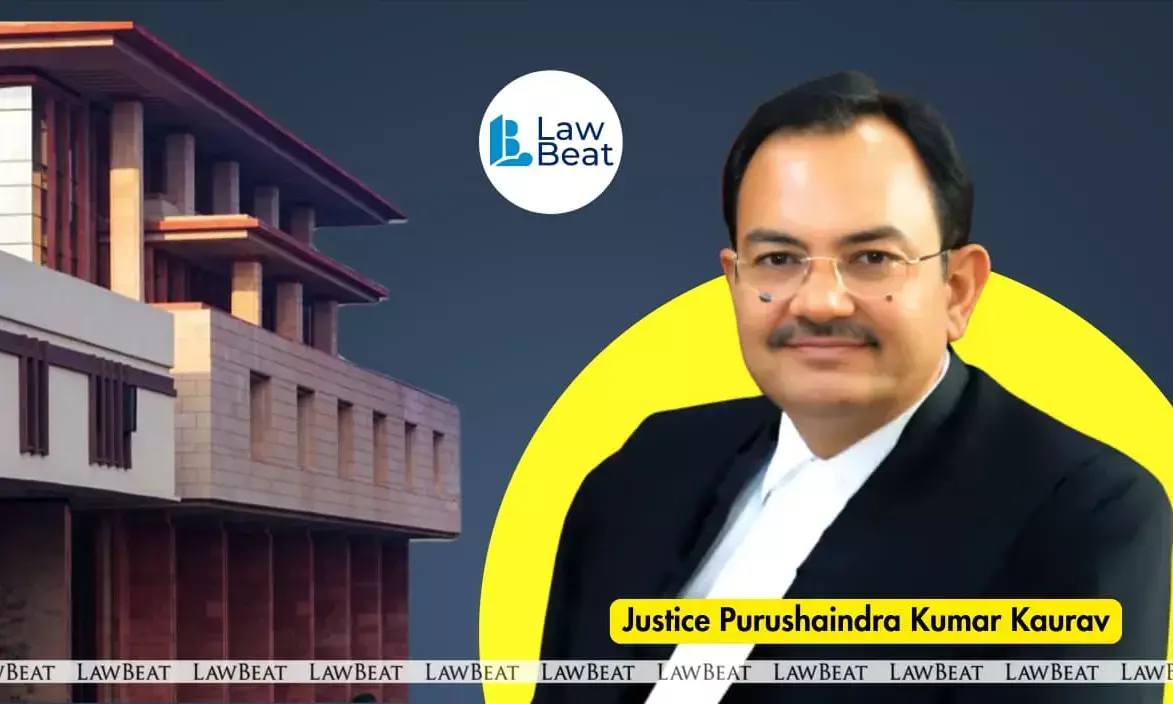Grandchild Has No Claim Over Grandfather’s Property If Parent Is Alive, Rules Delhi HC

A grandchild cannot inherit the grandfather’s property during the parent’s lifetime, says Court
The Delhi High Court has ruled that a grandchild cannot claim rights in a grandparent’s property while the parent is alive.
Justice Purushaindra Kumar Kaurav dismissed a civil suit filed by Kritika Jain against her father, Rakesh Jain, in which she sought partition and a declaration of her alleged share in a Janakpuri house that originally belonged to her late grandfather, Pawan Kumar Jain.
In her plaint, Kritika sought a declaration of entitlement to a one-fourth share in her father’s half of the property. She also sought a permanent injunction restraining her father and aunt from creating third-party interests. Represented by Advocate Aparna Jain, she argued that the suit property was ancestral in nature and therefore not governed by Section 8 of the Hindu Succession Act (HSA), 1956.
The defendants, Rakesh and his sister Neena Jain, moved an application under Order VII Rule 11 of the Code of Civil Procedure (CPC) seeking outright rejection of the plaint on the ground that it disclosed no cause of action. Appearing for them, Advocate Vineet Jindal submitted that under the HSA, Kritika had no right in the property during her father’s lifetime. He pointed out that after the death of Pawan Kumar Jain, the property devolved solely upon his widow and children under Section 8 of the Act, and not upon the plaintiff. He further contended that the civil suit was filed merely to exert pressure on the defendants.
The Court, at the outset, observed that under the Mitakshara school of Hindu law, prior to the enactment of the HSA, property inherited by a person from his father, grandfather, or great-grandfather was considered ancestral property in his hands. Consequently, a right to a share in such property vested in his son from the moment of his birth.
However, the Court clarified that the enactment of the HSA brought about a drastic change in the law relating to intestate succession among Hindus in India. Justice Kaurav emphasised that Section 8 of the Act provides a specific order of succession. When a male Hindu dies intestate, his property devolves upon the relatives listed as Class I heirs in the Schedule, namely, the widow, sons, daughters, and mother, to the exclusion of all others.
“It is pertinent to note that grandchildren, who are not children of a predeceased child, are not included in the list of Class I heirs. Therefore, if Section 8 is correctly appreciated, the suit property cannot be deemed to have devolved on the plaintiff upon the death of her paternal grandfather, her father being alive at the time,” the Court observed.
The Court thus held that Kritika was not a Class I heir at the time of her grandfather’s death, as her father, Rakesh Jain, survived him. Consequently, she had no independent right in the property.
Justice Kaurav further added, “On an appreciation of the provision under Section 8 of the HSA and the aforenoted decisions, it could be concluded that the share of defendant no. 1 in the suit property is his absolute property, and the plaintiff does not have any right in the same. The right asserted by the plaintiff is not recognized by the rules of succession as per Section 8 of the HSA. Having concluded that the plaintiff does not have any right over the suit property…”
Finding that Kritika’s plaint failed to disclose any cause of action, Justice Kaurav allowed the defendants’ application and ordered,“Since the plaint does not disclose any right of the plaintiff over the suit property, it is held that the plaint does not disclose any cause of action for the present suit. For, there arises no question of partition of the suit property or any declaration qua the same at the instance of the plaintiff, without the existence of a valid right therein.”
Accordingly, the plaint stood rejected, with the Court making no order as to costs.
For Plaintiff: Ms. Aparna Jain, Adv.
For Defendant: Mr. Vineet Jindal, Ms. Urvashi Parkash, Ms. Richa Pandey and Ms. Akshita Thakur, Advs for D-1 and 2
Case Title: Kritika Jain vs Rakesh Jain
Judgment Date: 9 September 2025
Bench: Justice Purushaindra Kumar Kaurav
